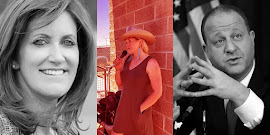The Crossley Center for Public Opinion Research’s Discussions in Diplomacy webinar series on the tensions and challenges in the Indo-Pacific is now available for viewing online. The three March webinars, a joint program with the Consulate-General of Japan in Denver, brought together eight professors from Japan and the Korbel School. The program was highly impacted by the Beijing Winter Olympics accord between Russia and China and the Russian invasion of Ukraine.
“Japan and U.S. Relations in Light of New Administrations and Challenges in the Indo-Pacific.” What adjustments can be expected in the U.S. and Japan alliance in light of the China-Russia accord and the invasion of Ukraine? Participants: Prof. Akiko Fukushima, Senior Fellow Tsuneo Watanabe, Prof. Suisheng Zhao and Prof. Floyd Ciruli (moderator). March 10, 2022WATCH ALL JAPAN DIPLOMACY PROGRAM WEBINARS HERE
Also, Professor Floyd Ciruli presented a PowerPoint with commentary describing the major issues that represented the geopolitical backdrop for our 2022 program.
IN THE FORUM
Can South Korea and Japan Work Together Despite Differences?
China-Russia Pact – A New World of Disorder
Authoritarian Behavior Costs Russia and China Support
Read the latest postings for Crossley Center events and Colorado, national and world public opinion analyses on our website.


















